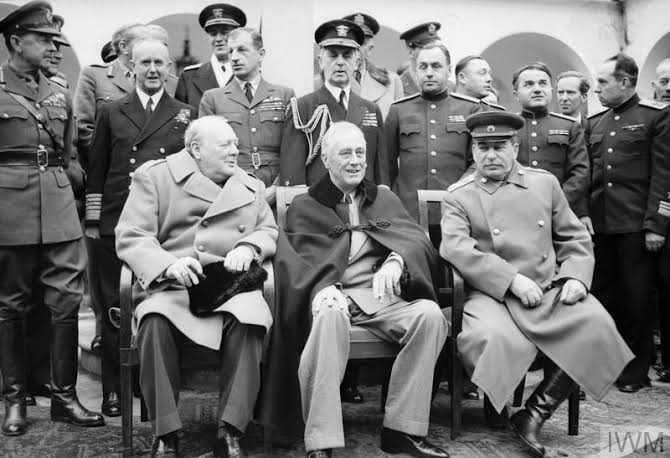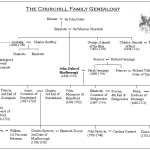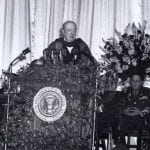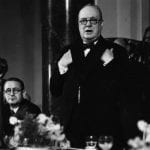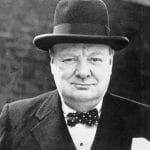FDR, Stalin, and Churchill were the primary Allied leaders in World War Two. The first two had a surprisingly respectful relationship, especially in regard to the future tensions of the Cold War.
Since late 1941, FDR had been arguably guilty of gross ignorance, willful deception, or outright lying in his favorable remarks about the Soviet Union. In November of that year, for example, he claimed that freedom of religion was a fundamental right in Stalin’s Russia, even though he knew that it had virtually ceased to exist under the Communist regime. When former U.S. ambassador to the Soviet Union William Bullitt spoke frankly to FDR about the true nature of the Soviet regime and of Stalin himself, just before the president was about to meet with Stalin and Winston Churchill at the Teheran Conference of 1943, FDR replied:
Bill, I don’t dispute your facts. They are accurate. I don’t dispute the logic of your reasoning. I just have a hunch that Stalin is not that kind of a man. Harry [Hopkins] says he’s not, and that he doesn’t want anything but security for his country. And I think that if I give him everything I possibly can and ask for nothing from him in return, noblesse oblige, he won’t try to annex anything and will work with me for a world of democracy and peace.
FDR, Stalin, and Churchill’s working relationship
At that Teheran conference in 1943, in which the three heads of state met to determine the post-WW2 world order, FDR suggested that Eastern European governments ought to be “friendly” to the Soviet Union. But he asked Stalin not to make this concession public, since he did not wish to jeopardize the Polish vote in the 1944 election—“as a practical man,” FDR “didn’t want to lose their votes.” (Shortly before the Teheran conference, FDR had absurdly claimed in a meeting with New York Archbishop [later Cardinal] Francis Spellman that the population of eastern Poland “wants to become Russian.”) He also said of Estonia, Latvia, and Lithuania—the Baltic states that Stalin was in the process of forcibly incorporating into the Soviet Union—that he was “personally confident that the people would vote to join the Soviet Union.” Stalin never bothered to ask them.
.In a May 1944 article in the Saturday Evening Post that was published with FDR’s approval, Forrest Davis described the president’s negotiating stance:
The core of his policy has been the reassurance of Stalin. That was so, as we have seen, at Teheran. It has been so throughout the difficult diplomacy since Stalingrad….Suppose that Stalin, in spite of all concessions, should prove unappeasable. . . . Roosevelt, gambling for stakes as enormous as any statesman ever played for, has been betting that the Soviet Union needs peace and is willing to pay for it by collaborating with the West.
Cite This Article
"FDR, Stalin, and Churchill" History on the Net© 2000-2024, Salem Media.
April 25, 2024 <https://www.historyonthenet.com/fdr-stalin-churchill>
More Citation Information.



